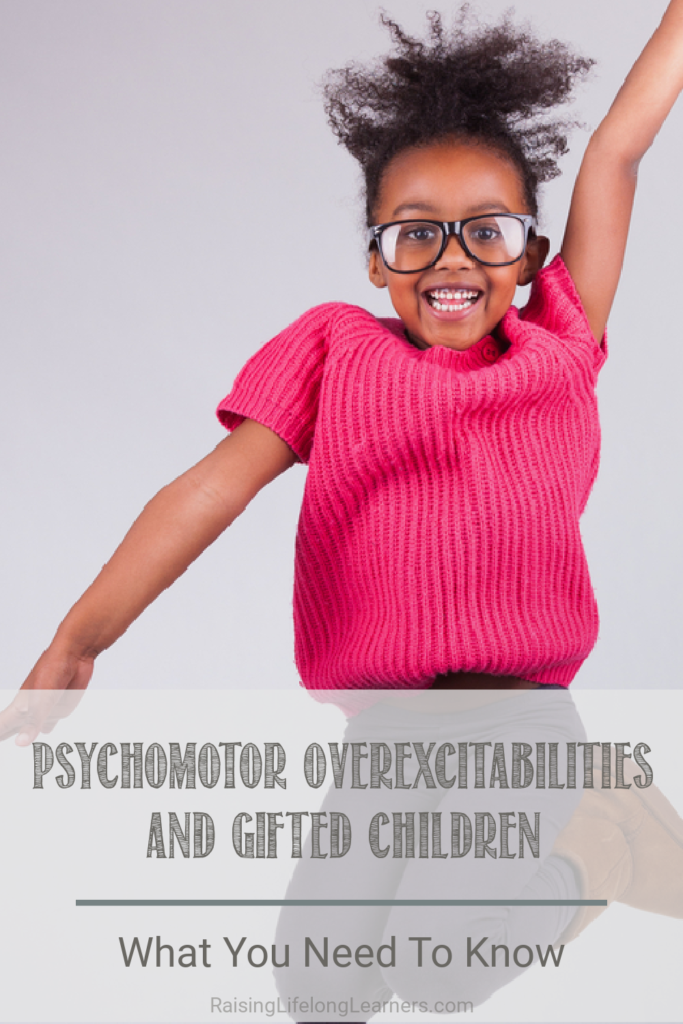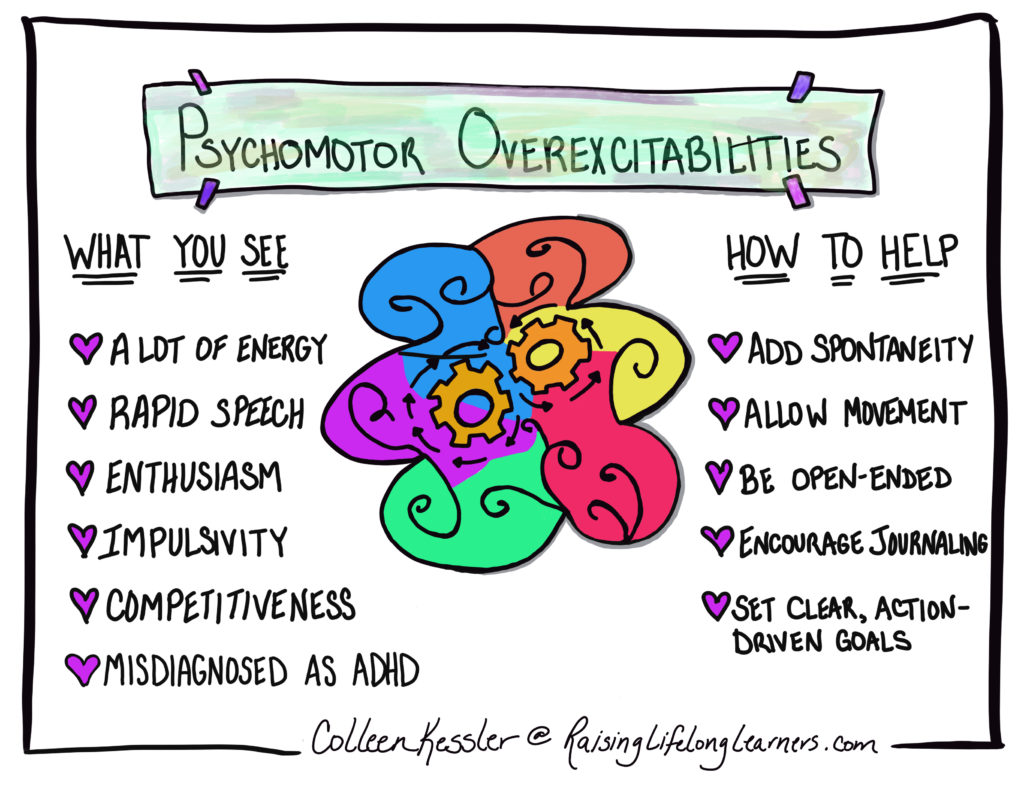Psychomotor Overexcitabilities And Gifted Children: What You Need To Know
This continues our overexcitabilities series for parents of gifted children. Today, the focus is psychomotor excitabilities and gifted children.
Gifted children with psychomotor overexcitabilities display extreme energy and activity levels. Due to heightened energy in the neuromuscular system, these kids seem like they never stop. They appear to move simply for the sake of moving.
Psychomotor Overexcitabilities And ADHD
Child with psychomotor overexcitabilities are often misdiagnosed with ADHD. While ADHD is very real, there are gifted children who exhibit some of the characteristics of ADHD, but actually are more appropriately described as having psychomotor overexcitabilities.
The difference between ADHD and psychomotor overexcitabilities is that a child with ADHD needs to move and fidget constantly, while a gifted child with overexcitabilities does it more with purpose.
This child moves to show what he’s thinking, to organize something, to create something, to explore something – there is a purpose and reason for the movement.
Because of this, stressed children with psychomotor excitabilities will often act impulsively and exhibit nervous habits. They can even develop tics due to stress.
These kids can be overwhelming to others, including their parents.
Helping Children With Psychomotor Overexcitabilities
Children with psychomotor overexcitabilities have the potential to be world-changers. Overexcitabilities are a part of who they are. Their minds are working at a rapid pace, and they need us to help them harness that mental energy appropriately.
Overexcitabilities are not traits that should be treated or fixed, they are gifts that should be embraced and directed.
What can you do to help your child live with his or her psychomotor overexcitabilities? Better, how can you help your intense child thrive? What are some strategies that will work? These three tips will help your child and we explore them in more detail in today’s podcast.
- Keep Them Moving
- Be Spontaneous Often
- Help Them Find Purpose And Understand Their Psychomotor Overexcitabilities
A Free Resource For You!
This visual overview of psychomotor overexcitabilities and reminders of how we can help our children will help you as you begin to incorporate this information into your daily life. Get your free copy HERE or click on the picture below!
Raising Lifelong Learners Episode 140: Psychomotor Overexcitabilities And Gifted Children
In today’s episode, we continue our overexcitabilities series for parents of gifted children. Today, the focus is psychomotor excitabilities and gifted children. Colleen discusses what these overexcitabilities are and how to help your child.
Links And Resources From Today’s Show:
- SPONSOR: CTC Math
- The Learner’s Lab, a Raising Lifelong Learners community created just for your quirky family!
- Strewing in Your Homeschool to Spark Curiosity
- A Guide To Overexcitabilities And Gifted Children
- Overexcitabilities and Why They Matter for Gifted Kids
- Psychomotor Overexcitabilities: Helping Your Child Thrive
- Emotional Overexcitability And Gifted Kids (what you need to know)
- Knowing Your Gifted Child
- Strew to Learn | Five Days of Inspiration and Support For Strewing In Your Homeschool
Leave a Rating or Review
Doing so helps me get the word out about the podcast. iTunes bases their search results on positive ratings, so it really does help — and it’s easy!
-
- Click THIS link to go to the podcast main page.
- Click on View in iTunes under the podcast cover artwork.
- Once your iTunes has launched and you are on the podcast page, click on Ratings and Review under the podcast name. There you can leave either or both! Thanks so much.
Want to record your own question, comment, or have your kids tell us what they LOVE to learn about? Click below and start recording!













